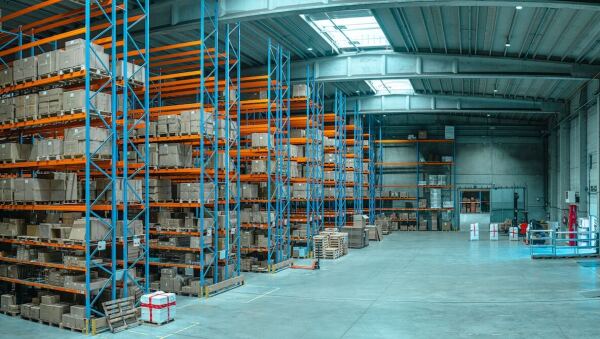Commercial businesses play a significant role in shaping our society and economy. From bustling offices to sprawling warehouses and vibrant shops, these commercial properties are the heartbeat of modern commerce. However, as we strive for progress and growth, it is crucial to recognise the importance of sustainability in these spaces.
In this blog, we explore how businesses can implement changes that create a greener and more sustainable future for all.

With the UK Government's ambitious net-zero goals set to transform our nation's carbon footprint by 2050, commercial properties are left with no choice but to adapt or fall behind. Several regulations have already been introduced. One such rule is the Energy Performance Certificate (EPC), a document that rates the energy efficiency of buildings. This certificate not only helps commercial tenants to make informed decisions regarding their energy usage but also encourages them to take steps to reduce their carbon footprint.
The Energy Savings Opportunity Scheme is another regulation to help large organisations identify energy-saving opportunities that can significantly reduce their operational costs. This mandatory scheme requires eligible companies to undergo comprehensive energy assessments every four years, allowing them to uncover hidden potentials for savings within their commercial properties. From small adjustments like optimising lighting systems and HVAC settings to larger-scale projects such as installing renewable energy sources, ESOS offers a roadmap towards greater efficiency while boosting cost-savings potential.
With the Government expected to introduce further regulations to meet its net-zero targets, it's vital that we continue to stay informed and adapt to reap the maximum benefits of such measures.

One key benefit of improving sustainability is the reduced environmental impact. With climate change becoming an increasingly urgent global issue, consumers are more conscious than ever before about their buying decisions. By implementing green practices, businesses can demonstrate their commitment to addressing these concerns and appeal to eco-conscious customers. By reducing waste, carbon emissions, and water consumption, companies can contribute towards mitigating climate change's devastating effects.
Beyond the positive effect on the environment, improving sustainability also leads to resource conservation. Many industries heavily rely on natural resources such as energy and water to operate efficiently. However, these resources are finite, making it essential for businesses to find sustainable alternatives or optimise their use. By doing so, companies not only protect themselves against future shortages or price fluctuations but also contribute towards creating a more equitable distribution of resources globally.
Another significant area that businesses can reduce their environment impact is by reducing the use of plastics in products and packaging. For instance, biodegradable or compostable materials such as plant-based plastics, paper, or cardboard can be used instead. These materials not only have a lower environmental impact but also often provide a higher level of eco-friendliness and sustainability. By adopting these alternatives, businesses can significantly contribute to reducing plastic waste and align themselves with the growing consumer demand for more sustainable options.
Another effective strategy to reduce plastic use is by implementing innovations in product design and packaging. This involves rethinking traditional packaging methods and finding creative solutions that minimise the need for plastic materials or eliminate them altogether. Companies can explore options like refillable containers, light-weighting products, or implementing efficient distribution systems that reduce excess packaging waste. Such initiatives not only help in reducing the carbon footprint but also showcase a commitment towards sustainability and inspire customer confidence in the brand's environmental responsibility.

Consumers are becoming increasingly conscious about their impact on the planet, and they are actively seeking out businesses that align with their values. By showcasing a commitment to sustainability, companies can differentiate themselves from competitors and attract a loyal customer base. A recent survey found that 70% of consumers would pay a premium for products from environmentally responsible brands, highlighting the potential financial advantages of going green.
In addition to improving brand image, adopting sustainable practices can also foster customer loyalty. When customers perceive a business as environmentally conscious and socially responsible, it fosters trust and creates an emotional connection with the brand. Research has shown that customers who feel emotionally connected to a brand are more likely to remain loyal over time, leading to increased customer retention rates. By implementing eco-friendly initiatives such as reducing waste or using renewable energy sources, businesses can generate positive word-of-mouth marketing as satisfied customers share their experiences with others.
As we strive to achieve net-zero emissions by 2050, it is crucial that businesses take immediate action to reduce their environmental footprint. By making changes now, such as transitioning to renewable energy sources, implementing recycling and waste reduction programs, and promoting sustainable supply chains, businesses can have a significant impact on mitigating climate change. Additionally, adopting sustainable practices not only benefits the environment but also provides opportunities for cost savings, and improved brand reputation. Therefore, it is essential for all businesses to commit to sustainability goals and actively work towards achieving them.
Centaur Properties is a leading commercial property rental company in Liverpool offering a selection of offices, warehouses, and retail spaces to let. View our website or contact us today on 0151 525 5569 to discuss our latest availability or to arrange a viewing.